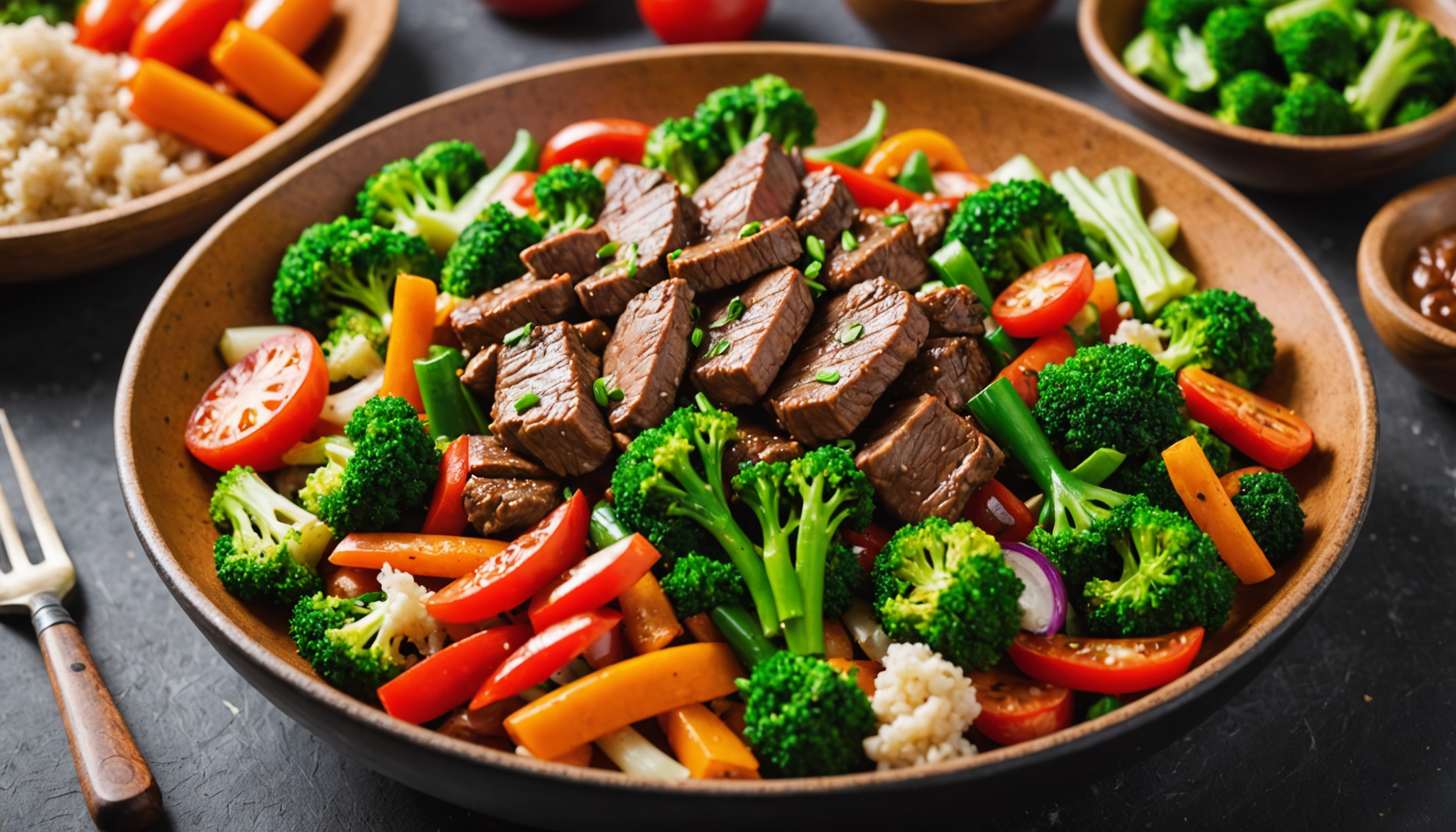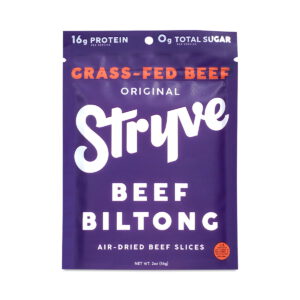- Benefits of Choosing Organic Beef
- Affordable Sources for Organic Beef
- Meal Prep Tips for Budget-Friendly Dinners
- Delicious Organic Beef Recipes
- Nutritional Value of Organic Beef
- Cost-Saving Strategies for Organic Meals
When it comes to grocery shopping, making informed decisions can save you money and improve your health. Start by focusing on your local farmers’ market for fresh, seasonal produce. Not only is this a great way to obtain organic foods, but it also supports your community and reduces your carbon footprint. Look for vendors who offer organic beef and produce; often, the prices are more competitive compared to large retail chains.
For a streamlined shopping experience, create a detailed list based on your meal plan. This can help you resist impulse buys and maintain focus on your budget. When shopping for budget meals, consider filling your cart with versatile staples such as beans, lentils, and grains, which are nutrient-dense and affordable. Pair these with organic vegetables for hearty, balanced meals that won’t strain your wallet.
In addition to fresh foods, online grocery shopping has become increasingly popular, especially for organic products. However, it is crucial to be vigilant about safety and quality when ordering online. Check the expiration dates, read product reviews, and ensure that the retailer is reputable. Use secure payment methods to protect your personal information and avoid phishing scams.
For those following a vegan or vegetarian lifestyle, look for plant-based protein alternatives like tempeh, tofu, and chickpeas which can also be utilized in many delicious beef recipes to create satisfying meals without meat. These options not only provide essential nutrients but are often more budget-friendly than organic meats.
When selecting beef, prioritizing organic options can lead to better health outcomes. Make sure to check for certifications to confirm that the beef is grass-fed or pasture-raised, as these factors contribute to overall quality and flavor. Additionally, if you notice sales or bulk purchasing opportunities, it’s wise to invest in larger quantities at a reduced price, as organic beef often tends to be more expensive than conventional meat.
To ensure you’re getting the best nutritional value, look for beef that’s bright red in color and avoid any that appears dull or has excessive liquid in the packaging. Purchasing in bulk can also lead to significant cost savings, allowing you to enjoy delicious organic beef dishes regularly without breaking the bank.
Remember, the key to effective grocery shopping lies in planning ahead, being aware of seasonal produce, utilizing both local and online resources, and making conscious decisions about the ingredients you incorporate into your meals. Whether you’re preparing easy organic cooking meals or exploring new beef recipes, your choices at the grocery store play a crucial role in supporting a healthy lifestyle.
Affordable Sources for Organic Beef
When looking for affordable organic beef, there are several key sources to consider that can help keep costs down while ensuring you still enjoy high-quality, nutritious meat. One of the best avenues is local farms and co-ops, which often sell directly to consumers. Not only does this support local agriculture, but it can also cut out the middleman, leading to lower prices. Establishing relationships with farmers can sometimes lead to discounts or pre-order opportunities for bulk purchases, making it a smart choice for those planning budget meals.
In addition to local farms, you might explore community-supported agriculture (CSA) programs. CSAs often include meat options alongside vegetables and fruits. By purchasing a share, you can receive a seasonal assortment of organic products at a reduced rate compared to retail pricing. Many CSAs are flexible and allow you to select the protein options that best suit your preferences, including organic beef.
Another excellent source is wholesale retailers like Costco or Sam’s Club, which often offer organic beef at competitive prices. They sell in larger quantities, which can be more economical for families or individuals prepared to freeze portions for later use. Additionally, buying whole cuts of beef instead of pre-packaged or processed meats can lead to significant savings. With a bit of meal prep ingenuity, you can transform these cuts into a variety of beef recipes that cater to different tastes.
Online grocery services, such as Thrive Market and ButcherBox, also provide organic beef options at reasonable prices. While these services usually require a membership, the cost can be recouped through the savings gained from buying in bulk. Be sure to keep an eye out for promotions or discounts, especially around holidays or local events, which can further reduce your expenditure.
Here’s a comparison table of various sources and their potential pricing strategies for organic beef:
| Source | Pricing Structure | Pros | Cons |
|---|---|---|---|
| Local Farms | Direct sales, bulk discounts | Supports local economy, fresher options | May require travel, limited selection |
| Community-Supported Agriculture (CSA) | Seasonal shares, upfront cost | Variety of products, farm-fresh | Commitment required, may not suit every meal plan |
| Wholesale Retailers | Bulk pricing | Lower prices on larger quantities | Membership fees, bigger storage needs |
| Online Grocery Services | Membership programs, delivery fees | Convenience, variety at competitive prices | Shipping costs, potential quality concerns |
By leveraging these various sources, you can find affordable organic beef options that align with both your budget and health goals. Each source has its unique advantages, and combining them allows you to enjoy delicious organic cooking, from savory beef stews to grilled steaks, while keeping your weekly grocery budget in check. Incorporating seasonal selections and planning your meals can further streamline costs—making organic beef not just a luxury, but a viable and nutritious choice for everyday meals.
Meal Prep Tips for Budget-Friendly Dinners

When it comes to meal preparation for budget-friendly organic dinners, organization and creativity are your best allies. Start by dedicating a day each week for meal prep. This not only saves time but also reduces the likelihood of opting for expensive takeout options after a busy day. Slice, marinate, and portion your organic beef into meal-sized servings; this way, cooking becomes a breeze during the week.
Incorporate flexible recipes that allow you to switch up flavors without needing to purchase a myriad of different ingredients. For instance, a simple organic beef stir-fry can convert into a beef taco filling just by adding different spices and vegetables. Stock your pantry with staples such as spices, grains, and legumes, which serve as the backbone of many meals and can be mixed and matched to keep things interesting.
Utilize your freezer effectively—batch cook and freeze meals for busy evenings. Prepare your organic beef in bulk and create different meals from one cooking session. A large batch of ground organic beef can be transformed into meatballs, tacos, or shepherd’s pie, all while saving time and money. This helps you not only manage your budget but also ensures that you always have a healthy dinner ready to go.
When preparing meals, focus on using fresh, seasonal produce to maximize both flavor and nutrition while keeping costs down. Farmers’ markets or local grocers often have discounts on produce that is in peak season. Combine these fresh ingredients with your organic beef for nutritious, hearty meals that please the whole family without breaking the bank.
Don’t forget about portion control. Many families inadvertently overestimate serving sizes, leading to food waste and higher grocery bills. Measuring portions can help you be more mindful, and if there are leftovers, transform them into new meals or freeze for future use. Leftover organic beef can be turned into salads, wraps, or grain bowls for a quick lunch option the next day.
Furthermore, when shopping online for organic products, ensure that you’re sourcing from reputable retailers. Often, stores will provide reviews and ratings for their products; leverage these to inform your choices, particularly for proteins like organic beef. Always look for deals on bulk purchases, but make sure to check if the shipping costs negate your savings. Prioritize vendors that offer free or discounted shipping for larger orders, which can make organic cooking even more budget-friendly.
Last but not least, involve your family in the meal prep process. This can be a great bonding activity, and children can learn valuable cooking skills while also becoming more open to trying new foods. Engaging everyone in the kitchen not only makes meal prep more enjoyable but also fosters a sense of appreciation for the meals being prepared.
Delicious Organic Beef Recipes
When it comes to preparing delicious organic beef meals, there are countless recipes that bring out the rich flavors of this high-quality meat without exceeding your budget. One of the fan favorites is a classic beef stew, which is not only comforting but also allows for flexibility in ingredients based on what’s in your pantry. Start with a few pounds of organic beef chuck—perfectly suited for slow cooking—and a medley of root vegetables like carrots, potatoes, and onions. Season it with herbs such as thyme and rosemary for an aromatic dish that warms the soul.
Another crowd-pleaser is the quick and easy stir-fry, which can be made in under 30 minutes. Slice organic beef sirloin into thin strips and sear it in a hot pan with a mix of seasonal vegetables—think bell peppers, broccoli, and snap peas. A splash of soy sauce and sesame oil will enhance the flavors, creating a restaurant-worthy meal at home. Serve it over brown rice or quinoa for a complete dinner that is both healthy and filling.
For something on the lighter side, consider crafting organic beef tacos. Utilize ground organic beef to prepare a flavorful filling seasoned with cumin and chili powder. Load your tacos with fresh toppings such as diced tomatoes, shredded lettuce, and avocado. Not only are these tacos quick to assemble, but they are also a fun, interactive meal that everyone can customize.
When contemplating a one-pan dish, an organic beef shepherd’s pie is an excellent option. Start by browning ground organic beef with onions and garlic, then add frozen mixed vegetables for convenience. Top the mixture with creamy mashed potatoes and bake until golden brown. This hearty recipe is great for meal prepping and can serve as lunch the following day, effectively stretching your budget further.
For those craving something a bit different, try making beef and vegetable kebabs. Marinate cubes of organic beef in a mixture of olive oil, lemon juice, garlic, and your choice of herbs. Alternate threading the beef with colorful vegetables like zucchini, cherry tomatoes, and bell peppers onto skewers. Grill or roast them for a delightful meal that can be served with a side of couscous or a simple salad.
Cooking with organic beef doesn’t have to be daunting or expensive. By incorporating a variety of recipes that are flexible and use seasonal produce, you can create satisfying dinners that cater to different tastes while keeping your budget intact. As the saying goes,
“Cooking is an observation-based process that you can’t get completely right. You just have to get pretty close.” – Ann Patchett
This approach will allow you to experiment with flavors, ensuring each meal is unique and enjoyable. Embrace these organic beef recipes as a way to nourish your family while making the most out of your grocery budget.
Nutritional Value of Organic Beef
 Organic beef is often hailed for its superior nutritional profile compared to conventional beef. One of the major benefits of choosing organic beef is its lower levels of saturated fats, which can contribute to a healthier cardiovascular system. Organic beef is also typically higher in Omega-3 fatty acids, essential for brain health and functioning, due primarily to the cattle’s grass-fed diets. These healthy fats not only help maintain proper bodily functions but can also support mood regulation.
Organic beef is often hailed for its superior nutritional profile compared to conventional beef. One of the major benefits of choosing organic beef is its lower levels of saturated fats, which can contribute to a healthier cardiovascular system. Organic beef is also typically higher in Omega-3 fatty acids, essential for brain health and functioning, due primarily to the cattle’s grass-fed diets. These healthy fats not only help maintain proper bodily functions but can also support mood regulation.
Moreover, organic beef tends to contain higher levels of beneficial vitamins and minerals, such as Vitamin E and beta-carotene, which are known for their antioxidant properties. These nutrients are crucial in fighting free radicals in the body and may lower the risk of chronic diseases. The iron in organic beef is more easily absorbed by the body, making it an excellent source of protein for individuals looking to increase their iron intake.
Considering the environmental factors, organic farming practices tend to prioritize sustainability, contributing to healthier ecosystems. Cattle raised organically are often fed organic feed without the use of antibiotics or growth hormones, reducing the risk of antibiotic resistance and promoting animal welfare. This not only positively impacts the quality of the meat but also encourages a more ethical food system.
It’s essential to understand how your choices, such as opting for organic beef, affect your health and the environment. Reflecting on these nutritional benefits might inspire you to explore more about the sources of your food and ways to make informed eating choices that align with your health goals. What other factors might you want to consider when choosing ingredients for your meals?
- What are the main nutritional benefits of organic beef?
- Organic beef typically contains lower saturated fats, higher Omega-3 fatty acids, and increased levels of vitamins like Vitamin E and beta-carotene. These nutrients contribute to better heart health, enhanced immune function, and improved overall well-being.
- How does organic beef compare in flavor to conventional beef?
- Many people find organic beef to have a richer, more robust flavor due to the animals’ diets and natural rearing practices. Grass-fed organic beef, in particular, is noted for its unique taste profiles that vary with the seasons.
- Is organic beef more expensive than conventional beef?
- Generally, organic beef is more expensive due to higher production costs, including organic feed and sustainable farming practices. However, by sourcing from local farms or buying in bulk, you can often find more affordable options.
- Can organic beef be a part of a balanced diet?
- Yes, organic beef can be included in a balanced diet when consumed in moderation, paired with plenty of vegetables, fruits, and whole grains. It provides essential protein and nutrients that are vital for bodily functions.
- What are the environmental impacts of choosing organic beef?
- Choosing organic beef generally supports more sustainable farming practices that reduce pollution and promote animal welfare. Organic farming methods do not use synthetic pesticides or fertilizers, contributing to healthier ecosystems.
- Are there specific health risks associated with conventional beef?
- Conventional beef can pose health risks such as exposure to antibiotics and hormones used in cattle farming, which may lead to antibiotic resistance and other health concerns. Organic beef minimizes these risks by adhering to stricter regulations.
- How can I incorporate organic beef recipes into my weekly meals?
- You can easily incorporate organic beef into your meals by planning recipes that utilize cheaper cuts. Options like stew, stir-fry, or slow-cooked dishes make excellent budget meals that leverage the robust flavors of organic beef.
Cost-Saving Strategies for Organic Meals
When it comes to maximizing your grocery budget while purchasing organic ingredients, several strategies can help you save money without sacrificing quality or nutrition. First and foremost, it’s vital to prioritize a shopping list that aligns with your weekly meal plan. This ensures that you’re only buying what you need, thus avoiding impulse purchases that can quickly inflate your grocery bill.
Consider buying in bulk, especially for non-perishable items and frozen foods. Many stores offer discounts on larger quantities of organic grains, legumes, and even frozen fruits and vegetables. Items like quinoa, dried beans, and oats are not only nutritious but also versatile for various dishes, helping to keep your meals exciting and budget-friendly.
Another great tip is to take advantage of food swaps, where friends or family exchange surplus food items. This can help you introduce new ingredients into your diet at no extra cost while reducing waste. For instance, if someone has a garden and offers you fresh vegetables, you can share some of your bulk grains in return.
- Seasonal Produce: Always try to buy fruits and vegetables that are in season, as they are generally cheaper and taste better. Farmers’ markets often have lower prices on these fresh, local produce items.
- Preserving: If you find a great deal on organic meats or fresh vegetables, consider preserving them. Freezing or canning can extend the shelf life of these items, allowing you to take advantage of bulk purchases without the fear of spoilage.
Next, explore local co-ops or community-supported agriculture (CSA) programs that offer organic products at competitive prices. These options often cut out the middleman, ensuring you’re getting quality food at more affordable rates. Participating in a CSA can also yield an exciting assortment of seasonal vegetables, perfect for complementing your organic beef recipes.
Online grocery shopping has its benefits, too—particularly for budget-minded consumers. Many online retailers provide loyalty programs and promotions that lead to significant savings. However, proceed with caution: ensure you read reviews about the product quality before making a purchase. Check the dates on meat products and opt for deliveries from vendors known for their transparency and adherence to safety standards. This will help you avoid spoiled items upon arrival and ensure that you’re getting the best value for your money.
For those looking to incorporate more vegetarian meals into their diets, consider exploring plant-based proteins which can be more cost-effective than organic beef. Items like lentils, chickpeas, and organic tofu can be excellent substitutes in dishes, providing both nutrition and savings. Plus, meal prepping with these ingredients can lead to deliciously diverse budget meals throughout the week.
Involving your family in grocery shopping can also enhance the experience and teach valuable lessons about budgeting and nutrition. Children can help choose fresh produce or even plan meals, fostering a sense of responsibility and appreciation for healthful eating. Ultimately, these strategies will not only help you navigate the world of organic cooking more effectively but also enhance the overall quality of your family’s meals while being mindful of your budget.
New Customers Offer!
Free Gift for the new customer
$24 Value, When You Subscrib Visit Thrive Market












